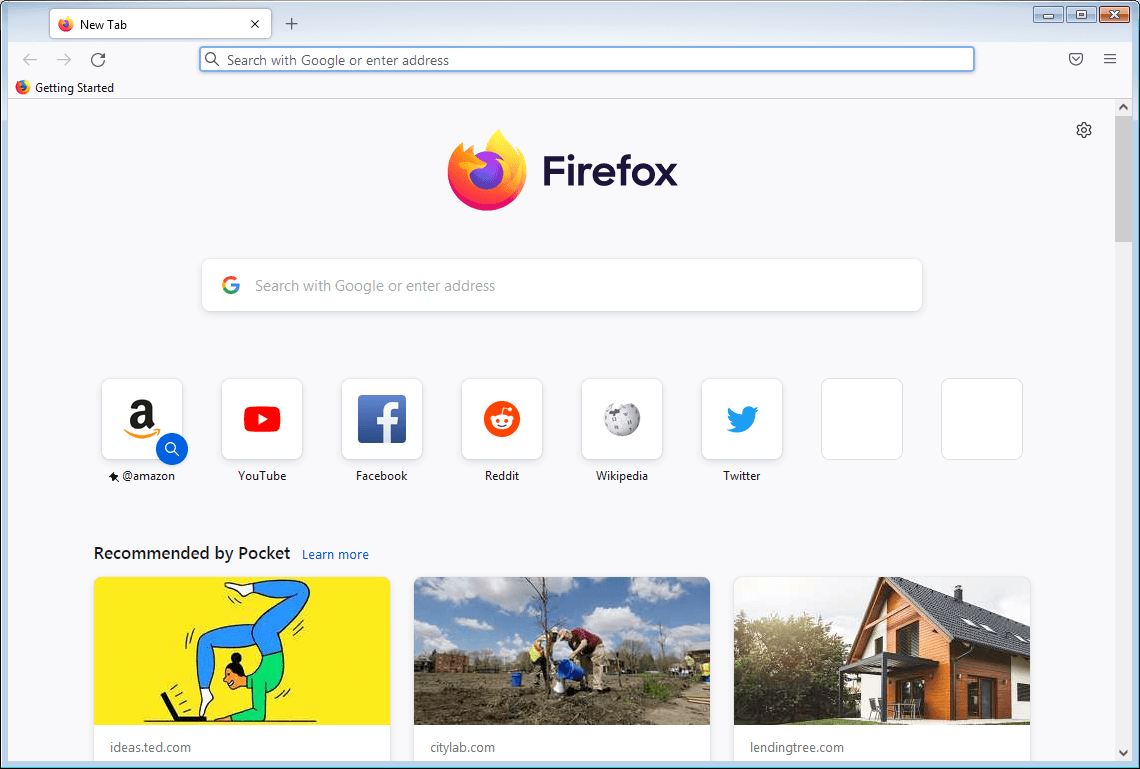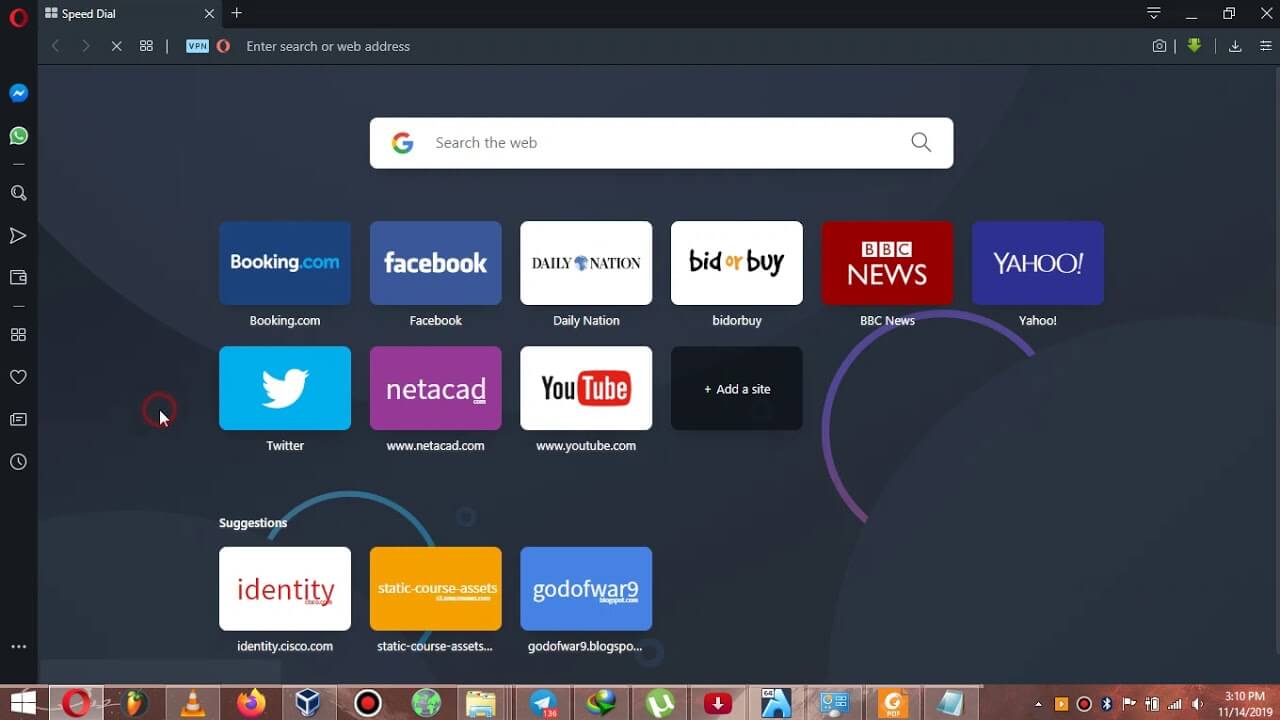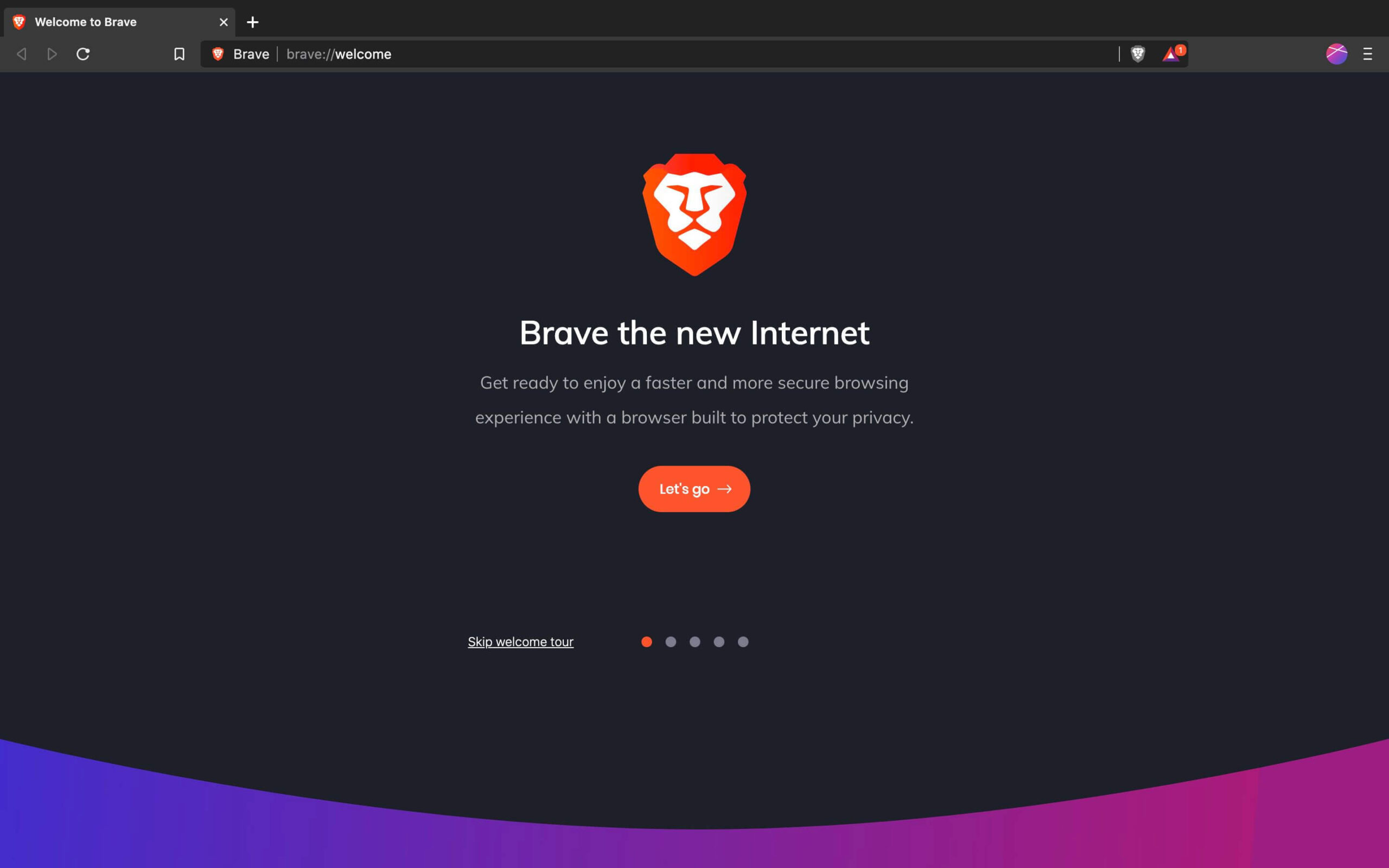Top Web Browser for Linux | Discovered for Linux

Linux users are fortunate to have a variety of web browsers at their disposal, each with its unique features and capabilities. Choosing the right web browser can significantly impact your online experience.
Now days TVs comes equipped with web browser and they are crucial part of life. Now when it comes to Linux it is important to choose the best web browser for Linux.
If we take a look at the available ones, there are many browsers to choose from. So if you are a tech geek and use Linux, we have complied a list of best browser to choose from. All of them are free to download.
In this article, we will explore the pros and cons of some of the top web browser for Linux.
Top Web Browser for Linux
1. Mozilla Firefox
Mozilla Firefox is the most popular browser among developer and web designers. It was initially released back in 2002 and become a instant hit. Many people don’t know that; when Firefox was launched back in 2002, it was called Phoenix and later on it was renamed to Firebird. It wasn’t until 2004 that it became infamous Firefox.

This browser comes pre-install with most of the Linux distros, For windows if you want to use something other than IE /Edge you should give Firefox a try. Main advantage with Firefox is the memory management. It will not slow down your computer if it mediocre on specs.
Firefox is available for Windows, Linux and Mac.
Pros:
- Open-Source: As an open-source browser, Firefox embodies transparency, community collaboration, and user-driven development.
- Privacy First: Enhanced Tracking Protection, sandboxing, and regular security updates make Firefox a stalwart defender of user privacy.
- Extensive Customization: With a vast library of add-ons, themes, and extensions, Firefox provides users unparalleled control over their browsing experience.
- Cross-Platform Sync: Firefox Sync ensures seamless integration across devices, syncing bookmarks, passwords, and browsing history.
- Container Tabs: Unique to Firefox, container tabs enable users to compartmentalize online identities for enhanced privacy.
Cons:
- Resource Intensive: Firefox can be demanding on system resources, leading to potential slowdowns on less powerful machines.
- Occasional Compatibility Issues: While rare, some users may encounter compatibility challenges with specific websites or applications.
- Slower Startup: Compared to some competitors, Firefox’s startup time might be perceived as relatively slower.
2. Google Chrome
Google chrome is the greatest web browser for Linux by the giant search engine Google. Chances are if you are reading this article you must be using chrome. It is a light weight , responsive and fast browser. Beside that, support for extension is cherry on top.

Chrome web store has thousands of amazing web apps and extensions to increase your productivity. This browser is available for cross platform ranging from Linux, mac and windows to mobile devices.
Pros:
- Blazing Speed: Renowned for its swift performance, Chrome excels in handling resource-intensive web applications.
- Automatic Updates: Chrome ensures users are always equipped with the latest security patches and performance improvements.
- Google Ecosystem Integration: Seamless synchronization of data through Google accounts ensures a cohesive browsing experience across devices.
- Vast Extension Library: The Chrome Web Store hosts an extensive collection of extensions, enhancing functionality and customization.
- Incognito Mode: A private browsing mode that doesn’t save browsing history or cookies after the session ends.
Cons:
- Proprietary Nature: Chrome is not open source, which may concern users prioritizing open-source software.
- Privacy Trade-Offs: Google’s data collection practices for personalized ads can raise privacy concerns.
- Resource Hog: Chrome’s efficiency comes at a cost, as it can be resource-intensive, impacting system performance.
3. Opera
Opera was always a quite player, it never took off as Firefox and Chrome did. Although in the early days, their mobile browser Opera mini was very popular. Opera has some amazing feature, among them was speed dial.

Which can increase the browsing experience and also help you save the data. Now Opera has moved towards the chromium project. They have kept the original feel. It has now support of chrome web app store.
Pros:
- Built-in Ad Blocker: Opera comes with an integrated ad blocker, improving page load times and decluttering the browsing experience.
- Free VPN: Opera offers a built-in VPN for enhanced privacy and security during browsing.
- Sidebar Features: A customizable sidebar provides quick access to bookmarks, history, and other tools.
- Speed Dial: Users can customize the Speed Dial page for quick access to favorite websites.
- Flow Feature: Opera’s Flow allows users to share files, notes, and links between their computer and mobile devices.
Cons:
- Not Fully Open Source: Opera, while based on Chromium, is not entirely open source, potentially limiting community contributions.
- Limited Extension Library: The extension library is not as extensive as Firefox or Chrome, limiting customization options.
- Less Familiarity: Opera’s user base is smaller, meaning fewer users may be familiar with its features.
4. Brave
The Brave browser blocks ads and trackers by default, promoting a private and secure browsing experience. Users can opt into privacy-respecting ads and earn Basic Attention Tokens (BAT) as a reward for viewing them.

Brave Browser comes with a built-in ad blocker, reducing page load times and improving overall performance. It’s unique shields feature allows users to control their privacy settings, blocking or allowing elements on a per-site basis.
Brave Sync enables users to synchronize bookmarks across devices while maintaining a focus on privacy.
Pros:
- Privacy-First Approach: Brave blocks ads and trackers by default, prioritizing user privacy and security.
- Built-in Ad Blocker: The browser comes with an integrated ad blocker, enhancing page load times and reducing clutter.
- Rewards System: Users can opt into privacy-respecting ads and earn Basic Attention Tokens (BAT) as a reward.
- Shields: Brave’s Shields feature allows users to control their privacy settings on a per-site basis.
- Sync Functionality: Brave Sync enables users to synchronize bookmarks across devices while maintaining a focus on privacy.
Cons:
- Based on Chromium: Some users may be wary of Brave’s reliance on the Chromium engine, raising concerns about potential privacy compromises.
- Smaller User Base: Compared to giants like Chrome and Firefox, Brave has a smaller user base.
- Learning Curve: Brave’s unique features may take some getting used to for users accustomed to more traditional browsers.
5. Midori
Midori is a yet another great web browser for Linux which is light weight and capable of good performance. Comes with support for both GTK+ 2 and GTK+ 3. Midori is one of fastest web browser for Linux, due to this reason it became the default browser in some Linux distros.

It also comes with support for user scripts and styles, smart bookmarks, ad blocking, mouse gestures, and a speed dial, among other things.
Pros:
- Lightweight Design: Midori is known for its minimalistic and lightweight design, ensuring fast startup and efficient resource usage.
- Speed Dial: The Speed Dial feature provides quick access to favorite websites with thumbnail previews.
- Privacy Options: Midori includes privacy features such as an ad blocker and the ability to disable scripts and plugins on a per-site basis.
- Web Extensions Support: While not as extensive as some browsers, Midori supports a range of web extensions to enhance functionality.
- Customizable Interface: Users can customize the browser interface to suit their preferences, adjusting themes and layout options.
Cons:
- Limited Extension Support: The extension library is not as extensive as more prominent browsers, limiting customization options.
- Occasional Stability Issues: Some users may encounter occasional stability issues during browsing sessions.
Conclusion
Choosing the best web browser for Linux ultimately depends on individual preferences and priorities. Whether you prioritize privacy, customization, speed, or built-in features, the Linux ecosystem offers a variety of browsers to cater to different needs.
Users are encouraged to experiment with different browsers to find the one that aligns best with their preferences and workflow.
What is your favorite browser? Let us know in the comment section below.

